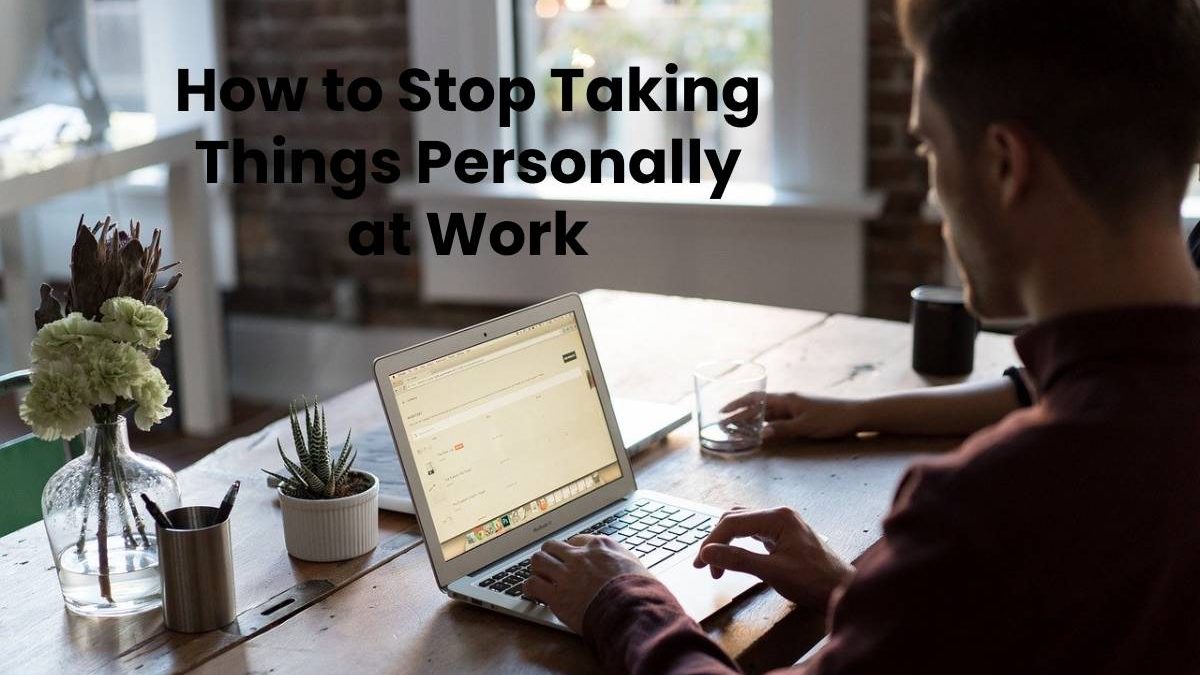Stop Taking Things Personally at Work
Work is an important place because you spend much of your day there. Naturally, you want it to be an environment where you feel appreciated and safe in your workspace. Sometimes we become close with coworkers, and it isn’t easy to differentiate between friendship and colleagues. It’s crucial to be mindful of these boundaries and learn not to take things personally at work. Here are some tips and tricks so that you don’t blur your boundaries.
Table of Contents
Reminder: you are at work
We are human beings, and it’s natural to be hurt from time to time. It may sound silly, but it can be helpful to remind yourself of where you are when you start getting hurt feelings. You are in the office. This is not a place to make friends and take things personally. Your job is to focus on your role in that space. If you find yourself angry or hurt, it’s time to remind yourself that you are not there for friendship. That can take the pressure off of you and help you stop taking things personally.
Ask yourself: why are you upset?
You’re human, and you may become hurt or angry at something someone does or says at work. Imagine you’re paired with a coworker that you don’t necessarily get along with and are having trouble seeing eye to eye. They dismiss your ideas, and that makes you angry. It’s time to take a step back and ask yourself: “what is this triggering in me?” It’s not about that person. So it doesn’t help to take their actions personally. You can’t control how they act, but you can’t control your response. Ask yourself what is this triggering in me that I’m getting so upset. Maybe you have an insecurity with regard to being appreciated. You feel like they don’t value your work. Remember that that’s not why you’re there. The goal is to get the job done, not be this person‘s friend. You can stop taking their actions personally.
Respond, don’t react
When somebody triggers you at work, it’s natural to want to react. They made you sad, angry or, hurt. It’s important to avoid the impulse to react. You can always say, I need to take a break and walk outside for a minute. If you are working remotely, you can step away from the computer and give yourself a moment to regroup. There’s nothing wrong with resetting your mind and not reacting when someone hurts you. It’s also crucial to remind yourself that their behavior is not about you. People have all kinds of struggles that we don’t know about, and those are not our issues to tackle. After you take a moment to regroup, you can choose whether you would like to respond to you how that person treated you.
Pick your battles
You don’t have to address every emotional issue that comes up at work. It’s important to evaluate whether this issue is worth fighting. If you have an ongoing relationship with this individual at work, you have to see each other; then it may be worth discussing what happened. But keep it exclusively to how this is impacting your working relationship, not your personal one. It’s crucial to have boundaries with your coworkers. Even if you are friends with them outside of the office, try not to let the lines get blurred at work. Instead, only address what is work-related.
Looking into emotional triggers
One place you can examine emotional triggers is in therapy. Remember that the workplace is not a therapeutic environment. However, you can get more emotional insight when you talk to your mental health professional or therapist. Once you are aware of your triggers, you’re going into the workplace educated. You will notice if something comes up for you. Therapy is an ideal place to talk about any problems you may have. Whether they are related to depression, anxiety, or addiction, it’s crucial to reach out for help no matter what your mental health needs are. You can read more about these issues on Mind Diagnostics. No matter what your mental health issues are, you can get the right support for your needs.
 Marie Miguel has been a writing and research expert for nearly a decade, covering a variety of health- related topics. Currently, she is contributing to the expansion and growth of a free online mental health resource with Mind-Diagnostics.org. With an interest and dedication to addressing stigmas associated with mental health, she continues to specifically target subjects related to anxiety and depression.
Marie Miguel has been a writing and research expert for nearly a decade, covering a variety of health- related topics. Currently, she is contributing to the expansion and growth of a free online mental health resource with Mind-Diagnostics.org. With an interest and dedication to addressing stigmas associated with mental health, she continues to specifically target subjects related to anxiety and depression.

